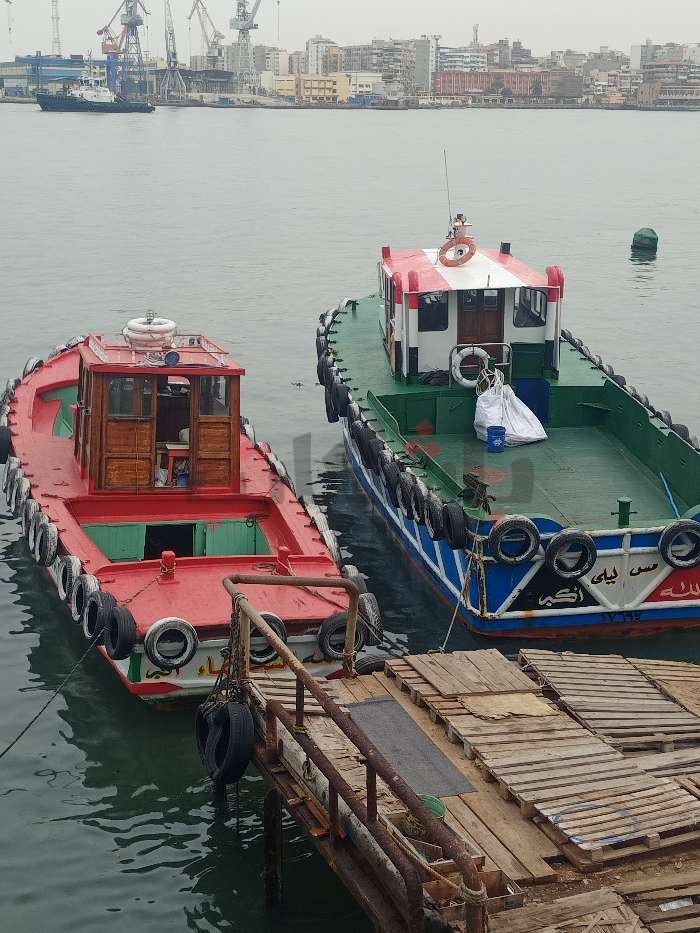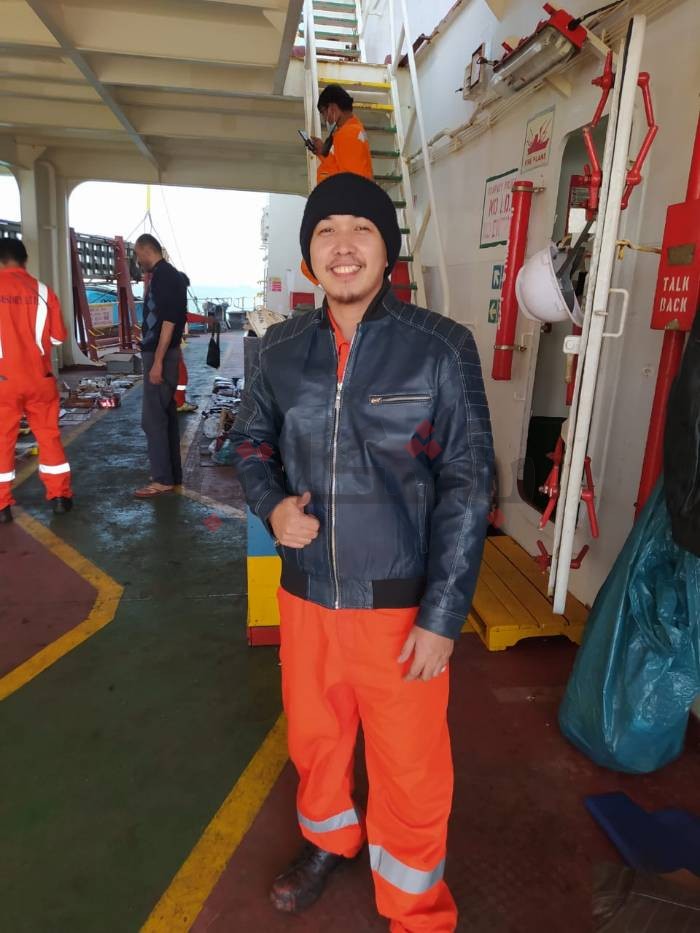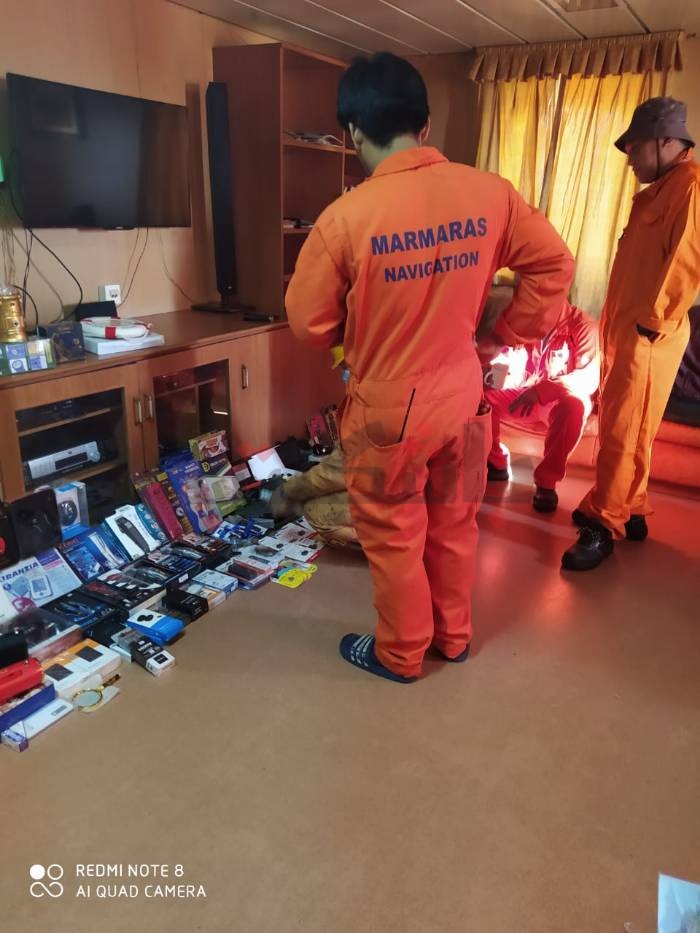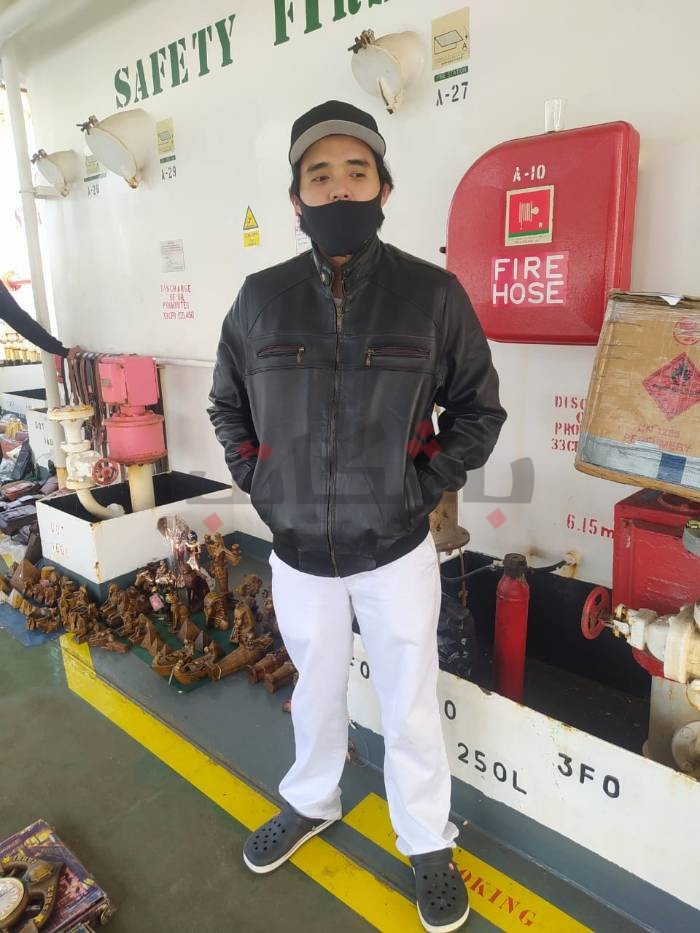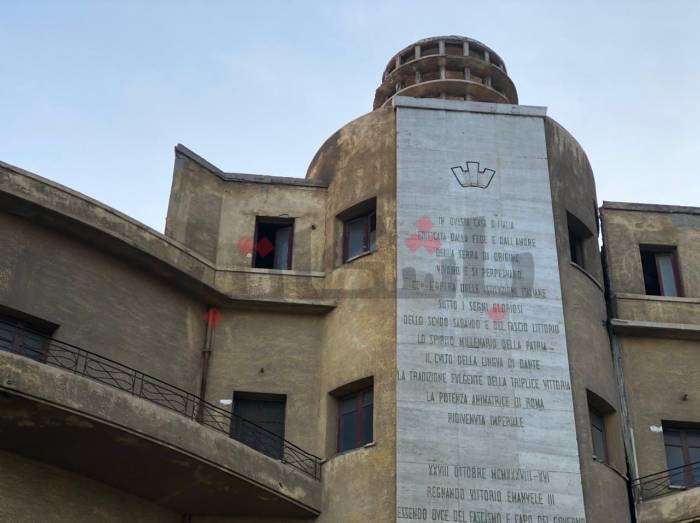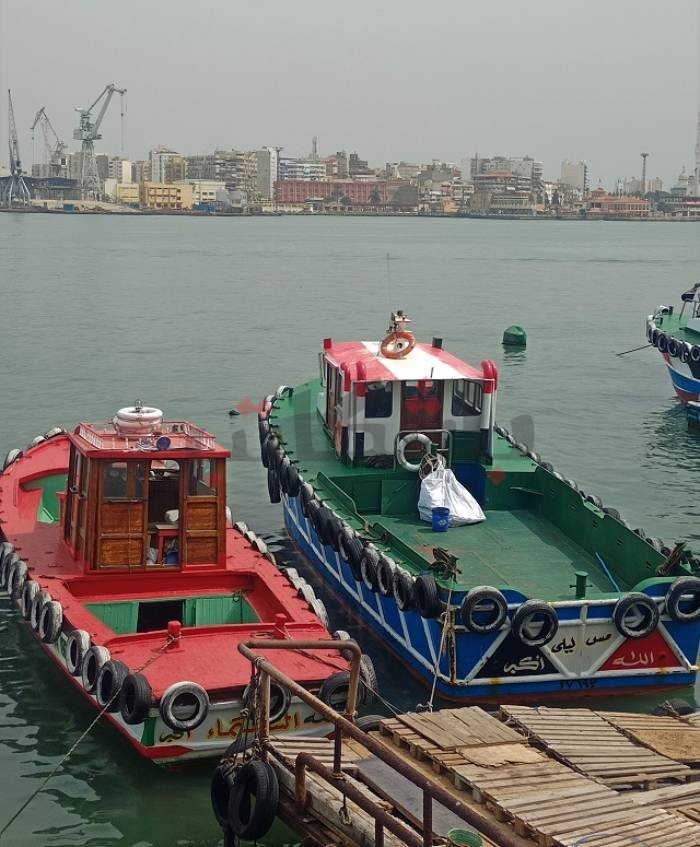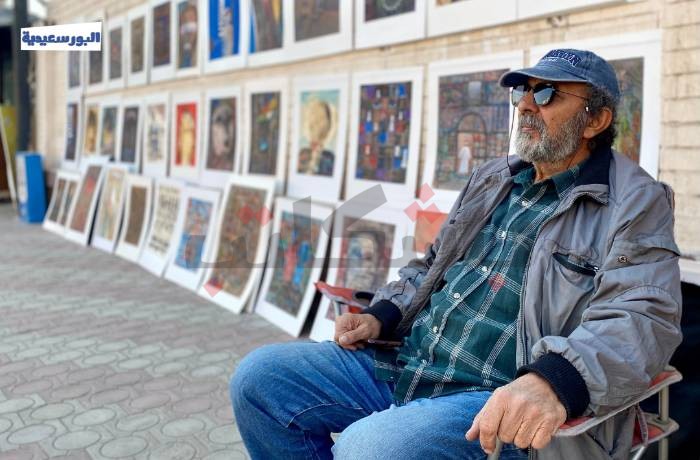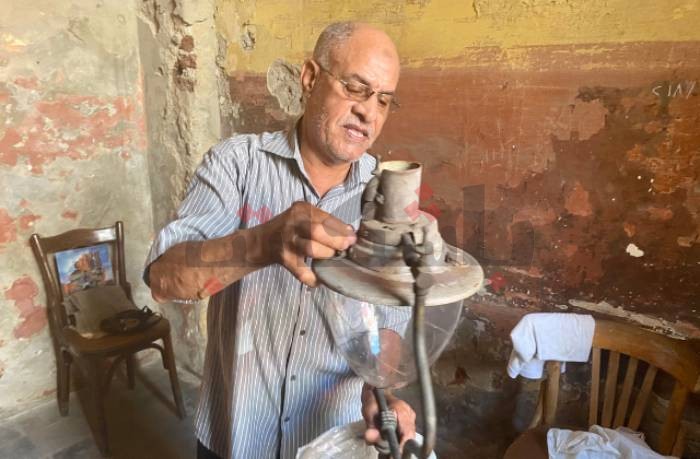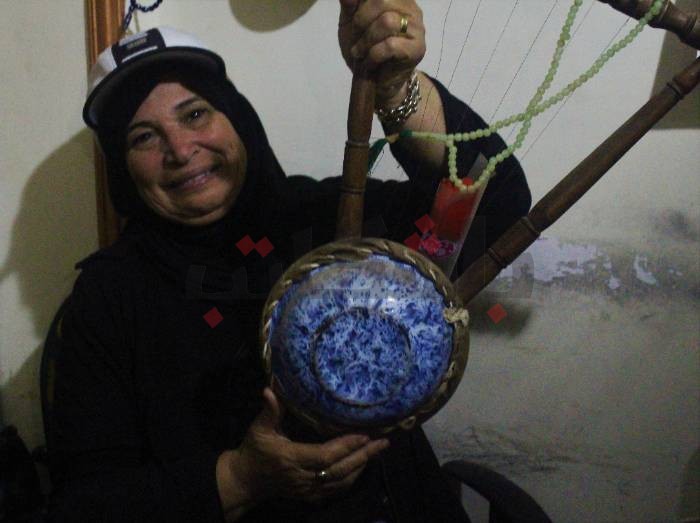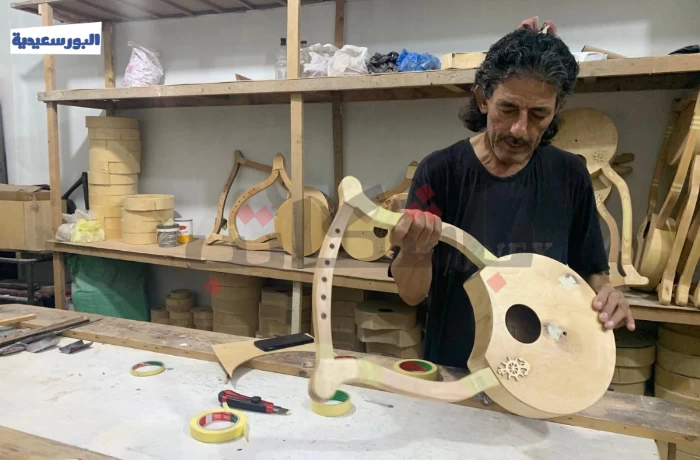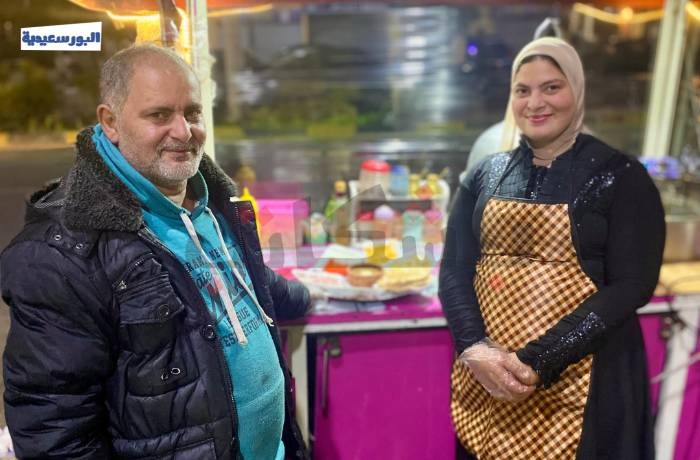Lined up on the shore of Port Said harbour small boats waiting for the ships crossing Suez Canal, sitting in the boats are the “Bamboutis” (boatmen), each one of them carrying goods to show them to passengers of the huge ships once they enter the harbour, goods like antiques, Pharaonic statues, souvenirs, clothes, electrical appliances, which they sell or trade for other goods.
Languages present no barriers for the Bamboutis, for most are fluent in more than one language, even if they do not have an academic degree in the first place. Continuous conversation with the captains of various ships helped them master languages, as it is part of their daily work routine, along with the arts of trading and sales.
The Bambouti profession is linked with digging the Suez Canal in 1859, the workers coming from Upper Egypt and Delta cities settled on the coasts of Port Said; they reached about 1,000 workers by the official opening of the canal in 1869.
Bambouti is an assimilation of the word “Boatman”, which the English used to call them at that time, but the people of Port Said Arabized the word changing it into “Bambouti”.
As time changes, also Bambouti profession took different shapes and forms, yet now it is on the verge of extinction as those who practise it are suffering to survive, whether because of decisions issued that led to difficulty in obtaining their work permits, while their boats were lined up on the docks, suffering from wear and tear and neglect.
The change in the recurrency of issuing the Port Authority’s work permit for Bamboutis was their first complaint; after the permit was issued every three years for free, more than a year ago they were surprised with an issuance of a decision stating the necessity of obtaining an annual permit for a high fee, the thing which takes a long time to do, as it requires several documents, such as the issuance of criminal record sheet, a letter from Bamboutis Syndicate, the approval of the Shipping Agency giving permission after the approval of the captain, the approval of the police stating there is no criminal record, the approval of the National Security stating there is no political activities, obtaining a travel permit from the Passports Authority, and the inspection of the goods they’re selling by the Border Guards.
All this forced the Bamboutis not to work for several months, some had to destroy their boats -according to the statements of some Bamboutis “Al-Porsaidiya” met- due to the increase of the cost for occupying a space in the port without having any income, as well as the accumulation of goods inside the warehouses without being sold.
Mahmoud Abdulfadeel, a 57-years-old Bambouti, he worked in this profession for about 44 years, “I can’t do anything else, I’m like a fish, I’d die if I left the sea”, he said, sighing sadly.
Mahmoud remembers how he worked in this profession for nearly half a century, he told “Al-Porsaidiya” that he used to go to the port in the early hours of the morning since he was a first-year high school student, his brother-in-law took him to work on a motorboat owned by a waste merchant inside the port, and it took Mahmoud long years of hard work until he became an accredited Bambouti.
“At first, my friend and I bought a motorboat and worked inside the port, until there was a decision permitting us to bequeath the Bambouti licence which I got from my father-in-law after he passed away," added Mahmoud.
Mahmoud points out that the Suez Canal Authority decision of cancelling permissions for boats to stop at the port exacerbated the Bamboutis situation; boats used to move directly from the harbour to the canal in the period after the January 2011 Revolution, but now they’re banned to wait at the platform.
Despite loving his profession, Mahmoud never encouraged his son to follow his lead, “society doesn’t look at us a with a kind eye, for many of us create problems, this in addition to many challenges we face and expenditures we’re required to pay, for example in order to make a trip to a ship, I pay 3,200 EGP for the motorboat rent and travelling procedures, then I pay rent for the car transporting the goods in my return journey from Port Said to Port Tawfiq, a journey which takes 10 hours to show the goods on board of the ship. After all these hardships, the captain might refuse to let me on board claiming I come without an official invitation from the government, or passengers might refuse to buy from me, and in the end, it is what God provides for each of us”.
Nonetheless, the 23-years-old Faculty of Information Systems graduate Moustafa, Mahmoud Abdulfadeel’s son, is still proud of his father, he joined in the conversation saying, “I am proud of my father’s profession, it is part of my country’s heritage and history, and I always feel that it is more than a profession, I support the decision of bequeathing the Bambouti licence for some families do not know any other profession, and it is the same as owning an antique house or shop, can anyone prevent you from passing it to your children? Saying otherwise would be a great injustice… that’s why I asked my father to work with him, but the law prevents practising Bambouti for those without a licence, and now I don’t intend to work as one as I have my own job at a shipping company, but my father’s profession has its value that reflects the image of Egyptians and their culture for other countries”.
Mahmoud Abdulfadeel interrupts his son explaining why he wanted him away from being a Bambouti, “after the people of Port Said returned from their displacement, the port was like a bee hive… now, things are moving from bad to worse, that’s why many professions has gone extinct like tailors how used to tailor clothes for the tourists, or magicians who entertained the passengers on ships, the barbers, shoemakers, and others”.
After all this, we can say that Bambouti became a busted trade and on the verge of extinction, amidst the absence of alternatives that may provide the families with a dignified life.
Last December, the Executive Council of Port Said Governorate approved the requests of the Senate member Adel Al-Lami and the head of the Port Said Chamber of Shipping, concerning the bequeathing the Bambouti licence to the son only.
Essam Abdulmaqsoud, President of Bambouti Syndicate, says that the syndicate demands bequeathing the licence to the son-in-law or brother-in-law also if the licence holder doesn’t have sons, adding “until now our demands, which we raised specifically to preserve the profession from extinction, weren’t approved”.
Abdulmaqsoud highlights the problem of the “mooring workers”; they’re responsible for accompanying the ships with a small motorboat to fix any technical faults. They are affiliated with the Suez Canal Authority, and receive monthly wages and insurance like any employee.
“Unfortunately, the mooring workers take advantage of meeting with the tourists and sell them goods just like the Bamboutis, with lesser prices of course, for they do not bear any expenses for transportation or permits, and this is an infringement on the Bamboutis. I reported this to the concerned authorities months ago, and they carried out a surprise inspection of the ships and confiscated the goods of the mooring workers, but soon they were back to selling goods again”, said Abdulmaqsoud.
Then he added, “we have 310 Bambouti registered licences, only 200 of them practise the profession and the rest are of old age, I always seek to answer their needs and help them through the services fund to provide them with the expenses of renewing the permit, paying the union, association and fellowship subscriptions, and giving out money in the cases of illness or death”.
This profession has a licence bequeathed from the father or grandfather, that’s why the heir can choose between becoming a Bambouti or be content with spending the annual revenue he obtains through the import quota, which was allocated by the Executive Authority in 1982 as assistance to the Bamboutis during periods of recession throughout the year
